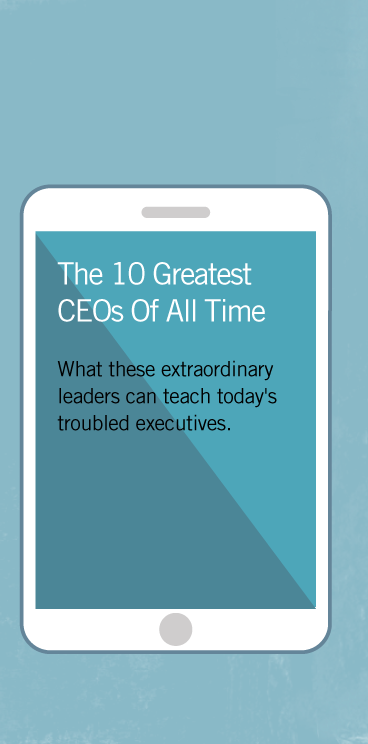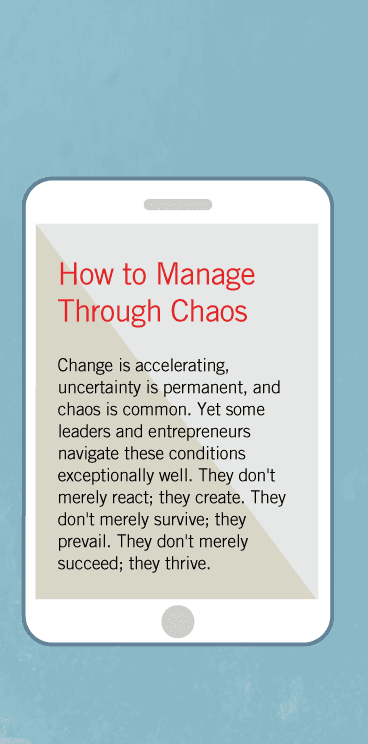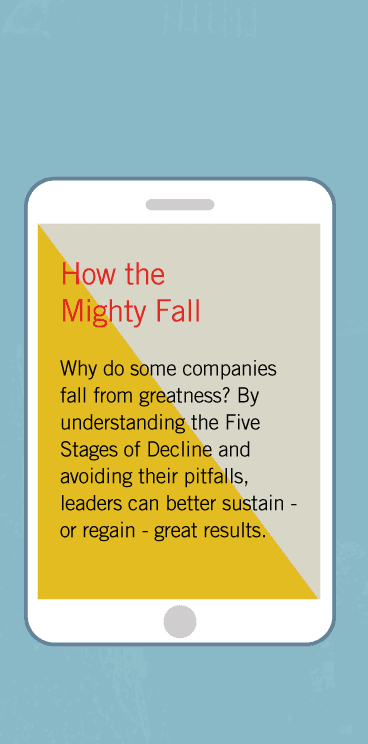Change is Good—But First, Know What Should Never Change
We no longer hold these truths to be self-evident. We can no longer afford to hold the belief that all men are created equal …
The Commander-in-Chief then speaks: "We need to take a hard look at the Bill of Rights. We certainly can't let those outdated values get in our way. Nothing is sacred anymore—not freedom of religion, not freedom of the press, not the right to trial by jury. We're in the third wave now. We must change."
Of course, this is an absurd scenario. But I've created it to drive home a point: Reengineering and other prevailing management fads that urge dramatic change and fundamental transformation on all fronts are not only wrong, they are dangerous. Any great and enduring human institution must have an underpinning of core values and a sense of timeless purpose that should never change. Give up the bedrock principles—the "what we stand for" and "why we exist"—of a great nation, and it will eventually cease to be great.
The same lesson applies to corporations. I've found that the best of them—companies like Hewlett-Packard, Disney, and Boeing, which as a group have outpaced the stock market averages some 15-fold since the 1920s—have one thing in common. They have successfully adapted over the decades to a changing world without losing their core values. They have done so by grasping the difference between timeless principles and daily practices.
Disney, for example, has almost religiously preserved a central ideology of wholesomeness and bringing happiness to people, yet it has continually changed its product strategy—from cartoons, to feature films, to the Mickey Mouse Club, to Disneyland, to videos. Boeing resolutely held tight its core philosophy of product integrity and leading-edge aviation, yet turned its business strategy upside down in the 1950s by betting the company on commercial jets at a time when 80% of its business came from military bombers.
At IBM, service to the customer above everything else was a core value; dominating the mainframe computer market was a business strategy; and compulsory white shirts an operating practice. IBM stumbled badly in the late 1980s because it drifted from its core values (which it should never have abandoned) while remaining too rigid in its strategies and operating practices (which it should have changed far more vigorously).
So how do you tell the difference between timeless principles and ephemeral practices? First—and this is vital—understand that a core ideology does not arise from the pursuit of competitive advantage. Valuing freedom might be a competitive advantage for the U.S., but that is not why we embrace this belief. A true core value is something you would hold even if it became a competitive disadvantage (although that seldom happens).
HP founders Bill Hewlett and David Packard didn't make respect for the individual a core value at their company for strategic advantage. Rather, they believed it was the morally right way to manage. At one point they passed up significant growth and profit opportunities by turning down big government contracts that would have forced them into a pattern of on-again, off-again, "hire and fire" employment. The decision paid off, though, by fostering greater loyalty among HP's workers.
The critical question to ask is, if the world changed such that you were penalized for this tenet, would you continue to hold it? If so, then it is probably part of your core ideology. You will likely only find a handful of truly basic principles that you would want your company to hold forever—any more than five, and you're probably mixing up core ideals and business practices. Answer this question with clarity, and you'll know what you should not change. That crucial knowledge, in turn, will then free you to alter everything else.






